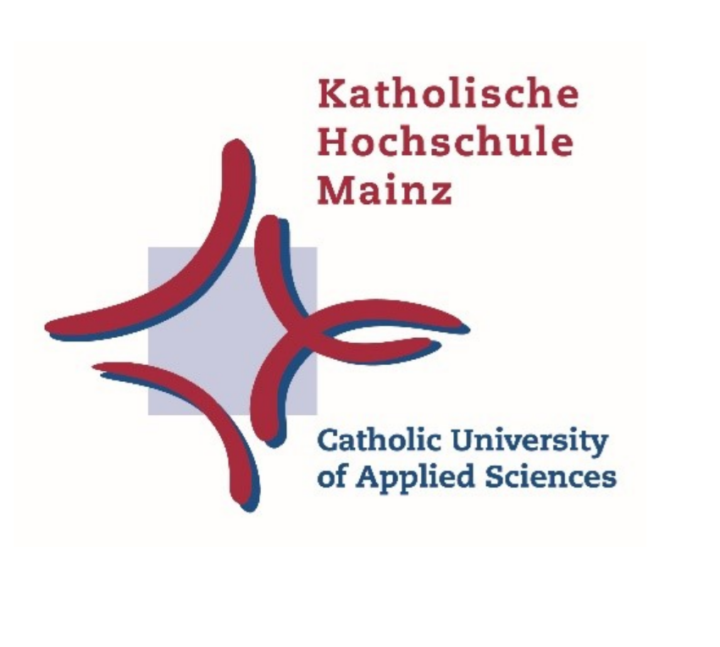Press release
Mainz, April 2021
Catholic University of Applied Sciences Mainz (CUAS Mainz): International research team develops training course and learning platform to support nursing managers coping with the effects of nursing shortage.
By developing a training course and a learning platform to promote the competences of nursing managers in coping with the consequences of the nursing shortage, the team of the research project NM4Safety has reached an important milestone. The acronym NM4Safety stands for Nurse Management for Patient Safety. Together with colleagues from Italy, Switzerland and Cyprus, the CUAS Mainz researchers are pursuing the goal of using the training program to promote competencies in dealing with the nursing shortage, thus contributing to strengthening patient safety. „A shortage of nurses leads to rationing in nursing care, which means that patients do not receive the nursing care that they ought to receive. Due to lack of time or a difficult staffing situation, for example,” explains Dr Renate Stemmer, Professor for Nursing Science and Nursing Management at the CUAS Mainz and project leader in Germany. “The question is what opportunities – apart from recruiting and financing aspects – are there in nursing management to respond to this situation in the best possible way and to ensure safety in nursing care. The training course aims to impart competences and ideas to support the managers responsible for wards, departments or facilities in hospitals as well as inpatient and outpatient care in dealing with the phenomenon of nursing staff shortages,” Stemmer adds.
The project focuses particularly on creating structures and processes, and on the effects these have on ensuring patients’ safety. “An important role here is, for example, the subject of the working environment. How we can build up a culture of cooperation and trust, promote interdisciplinary work or create a conducive communication and atmosphere despite a shortage of nursing staff,” explains Christina Ströhm, one of the project’s researchers. In the first phase of the project, research findings and best-practice examples in the various countries were identified. By conducting interviews in so-called focus groups, the practical experiences of nursing managers were also included and documented. Frank Müller, Nursing Director of the Landeskrankenhaus AöR (state hospital) points out: “The effective use of nursing staff must be oriented to the care needed. In the face of restrictive framework conditions, getting to know new but nevertheless proven instruments can reveal new perspectives. A conducive working environment contributes to increasing the job satisfaction of the nursing staff, in spite of the great challenges involved. I consider this to be an important task in nursing management.”
On the basis of the collected data, the training program was devised and is now being tested in a piloting phase. Those taking part in the testing phase already have clear expectations for the new course. “The German health system needs more nursing staff. On the other hand, we have a depleted labor market and manifold tasks that have to be dealt with. This means that it is necessary to keep track of staff scheduling and deployment. I expect to learn new coping strategies from an appropriate training course that will help me work in a lawful manner in the time available,” comments Patrick Weiß, nursing manager at the nursing home “Haus Jona”, which is situated in the region of Frankfurt. “I think it is excellent that an EU project with this thematic discussion has been set up. I very much hope that the learning platform will offer tools and instruments that can be applied quickly and easily so that despite constant down-scaling in nursing care it will be possible to take care of the residents (patients) and to ensure their safety with the same high quality. In addition, I would like to see a lot of input with best-practice examples during the training courses, particularly regarding deploying staff under difficult conditions,” emphasizes Thomas Seif, who is the managing director of another nursing home in the region of Frankfurt called “An der Fasanerie”.
The pilot phase should be finished by February 2022 when it will be followed by the assessment and evaluation of the course and the development of a catalogue of measures to support nursing managers in their decision-making. Following the end of the whole project in autumn 2022, the learning platform is planned to be made available as a free offer on the internet.
Further links: COST-Action RANCARE
The project NM4SAFETY is incorporated in COST-Action RANCARE. The acronym COST stands for European Cooperation in Science and Technology. COST is an intergovernmental organization and is funded by the EU Framework Program Horizon 2020. The COST-Action “RANCARE: Rationing – Missed Nursing Care: An international and multidimensional problem” was initiated by Cyprus. A total of 28 European countries are involved. Prof. Dr Renate Stemmer (CUAS Mainz) and Prof. Dr Monika Haberman (University of Applied Science Bremen) have been appointed as the representatives for Germany by the Federal Ministry for Education and Research


